 It’s been 3 years; we thought we’d check back in.
It’s been 3 years; we thought we’d check back in.
When we last visited the ‘Tipsy Bartender’ YouTube Star Skyy John, he had just surpassed the 1 Million Subscriber mark. As of June 27, 2019, his subscriber totals register at …
3,716,528
Wow! New Media charges forward!
… while in the meanwhile, Old Media retrenches:
Title: Traditional TV Still Sinking in Stream of Digital Video
Sub-Title: Nielsen Total Audience report shows 68% of homes have connected devices
By: Jon Lafayette
Traditional TV watching continues to wane, especially among younger consumers, as more homes get connected devices and streaming services. …See full Article here: https://www.broadcastingcable.com/news/traditional-tv-still-sinking-in-stream-of-digital-video – posted March 19, 2019; retrieved June 27, 2019
Since it is 3 years to the day, now is a good time to Encore that original blog-commentary on – ‘Tipsy Bartender’ from June 30, 2016. See it here-now:
—————-
Go Lean Commentary – YouTube Millionaire: ‘Tipsy Bartender’
“Out with the old; in with the new” …
… media that is.
The transformation to new media has taken hold. More and more people are consuming electronic media; so much so that it is becoming the mainstay for communications and entertainment.
This reference to electronic media conveys visual images; that means television, yes …
 … but today, there is also the ubiquity of the internet, with its many video streaming services. The “new” in new media refers more to this medium than it does TV.
… but today, there is also the ubiquity of the internet, with its many video streaming services. The “new” in new media refers more to this medium than it does TV.
This is the change that has come to the world … and the Caribbean.
The book Go Lean … Caribbean advocates for the Caribbean region to better prepare to exploit the agents of change affecting the world. The book specifically identified technology and globalization among those agents (Page 57). It then declares that the region needs to move to the corner of preparation and opportunity.
Here – this commentary – is an example of the full manifestation of this “corner”. Identifying how – and why – networks can emerge without the need for investment into network infrastructure. The old adage is “where there’s a will, there’s a way”; but now there is only the need for the “will”, as the “way” is already in place, ubiquitous and fully accepted.
The Go Lean book relates how we are now able to have a network without the “network”. Many models abound on the world-wide-web. Previously, this commentary identified the World Wrestling Entertainment (WWE) and ESPN-W; now the focus is the platform of YouTube, and the millionaires that have emerged. The YouTube network is delivered via the internet-streaming only.
This platform allows for nimble individuals and enterprises, the “fast and the furious”, to exploit the tenets of Internet Communications Technologies (ICT). So this platform – or even a homegrown duplicate as in the www.myCaribbean.gov portal defined in the Go Lean book – demonstrates how we in the Caribbean can elevate our eco-systems of ICT, entertainment, television, and economics.
This commentary presents the profile of one member of the Caribbean Diaspora – Bahamas – who serves as a role model for his exploitation of YouTube videos: Skyy John.
DATE OF BIRTH: January 2, 1978
BIRTHPLACE: Nassau, Bahamas
AGE: 38 years old
ABOUT
Host and creator of the YouTube channel Tipsy Bartender, the number one bartending show in the world. On the show, he makes crazy, colorful drinks.BEFORE FAME
Before moving to America, he was a bank teller by day, a Dominos pizza delivery guy by night, and a fisherman on weekends. He is also a former member of the Bahamian military (Defence Force).TRIVIA
He has acted in co-starring roles on television series, including The New Adventures of Old Christine, Cold Case, The Shield, The Young & Restless. He has also appeared in movies: Dorm Daze 2 (2006), Street Eyes (2015) and Whitey Goes to Compton (2011).
Source: Retrieved June 29, 2016 from http://www.famousbirthdays.com/people/skyy-john.html
See a full interview from Tubefilter in the following article. Tubefilter is a curator of online videos from industry news, web series reviews, events, and an Awards Show. They published a web series on YouTube Millionaires. See the full article here:
Title: YouTube Millionaires: TipsyBartender Is “Here To Have Fun And Make Cocktails”
By: Sam Gutelle
Welcome to YouTube Millionaires, where we profile channels that have recently crossed the one million subscriber mark. There are channels crossing this threshold every week, and each has a story to tell about YouTube success. Read previous installments of YouTube Millionaires here.
Skyy John has successfully brought the party to YouTube. The 37-year-old Bahamian has found online success thanks to TipsyBartender, a channel on which he teaches viewers how to craft a variety of mixed drinks. John’s videos tend to have several elements in common: They feature colorful beverages, feature attractive women as John’s assistants, and convey a fun-loving atmosphere. This formula has proven to be a hit with the online audience. TipsyBartender, which is partnered with the Tastemade network, now has more than 1.4 million subscribers. Here’s what John had to say about that:
Tubefilter: How does it feel to have one million subscribers? What do you have to say to your fans?
Skyy John: It feels amazing, humbling and empowering when you think of that many people supporting what you do.
I would like to tell each one of them that I love you, and you’re all very special to me. To celebrate hitting one million subscribers, I set up a meet and greet at a local bar. I bought everyone drinks and shots all night because it’s the least I could do to show my appreciation.
TF: How did you get started on YouTube?
SJ: In the early days of YouTube I had an idea for a talk show – I shot a really low budget pilot of it and posted it online. The response was good, so I kept making videos where I’d go around and interview people. As a means of diversifying my content, since I was a bartender, I’d show people how to make one or two cocktails. A friend of mine, Monroe, said “Hey, why don’t you start a bartending channel?” I said, “That’s a good idea,” and TipsyBartender was born.
TF: What made you decide to include women in all your videos?
SJ: When you come to the TipsyBartender channel and you watch an episode, yes I always have an attractive female cohost, and to the new viewer who thinks they’re there for looks, it’s much deeper than that. Behind the scenes, the show has been primarily powered by women, in terms of working out the format, designing the style of thumbnails, choosing the drinks that we make – it’s all been women. Without that very important female touch, the TipsyBartender show that you see today would not exist. I’d like to give a special thanks to Marjane and Emma, the two that really helped me create what you see today. TipsyBartender will always be home to women from all over the world who don’t get a chance in any other medium.
TF: When you create your videos, how do you balance entertaining your audience with conveying your recipes?
SJ: We maintain a very delicate balance between entertainment and education. We keep our recipes simple, which allows us to focus on the entertainment more. Our goal is to learn and have fun while doing it. We are, after all, a party channel.
TF: What in your mind is the most important component of a good cocktail?
SJ: The most important component of a good cocktail is you – the person that I’m serving. You have to like what I’m giving you. The easiest way to accomplish that is to build a cocktail using some ingredients that you already enjoy. You like Kool Aid? I’ll build around that. If you like ice cream, I’ll build around ice cream. You like Gatorade? I’ll build around that. Whatever you like, I’ll use – and that mentality is what makes me a pariah in the world of mixology because most mixologists feel that they know better than you what you should be drinking. They’ll give you a cocktail with aged whiskey, organic basil, handcrafted bitters, ice from the Alps, and tell you that “Hey, this is the most perfect best greatest drink ever!” What if that person you’re serving it to doesn’t like any of that s**t? Only you know what you like. You’re drinking the drink, I’m just working with you – i’m not a mixologist. I’m here to have fun and make cocktails. Drinking is supposed to be enjoyable, not feel like a damn chemistry exam.
TF: There don’t seem to be a ton of drinks channels on YouTube. Why do you think it’s not a more common category?
SJ: Because it’s very difficult to do. Drink-making is not that exciting because it’s very difficult to present it in an interesting format. Luckily, we’ve been able to get it right and to keep people interested, and every day we strive to continue doing what we’re doing and make our audience grow.
TF: What is your favorite cocktail you’ve made on your channel?
SJ: There are too many to list. Some of the favorite drinks I made were the rainbow shots, because that was difficult to learn how to do. Definitely some of the jungle juices because they’re pretty crazy, and believe it or not it requires a lot of math and planning to make the appropriate amounts in large quantities. Some of the jello shots we’ve made for sure. My favorites would probably have to be ice cream drinks or drinks based around rum, especially coconut rum.
TF: When you’re out bartending, do you ever get recognized as “that guy from the Internet”?
SJ: All the time – but I don’t bartend in a bar anymore. I actually got fired because of TipsyBartender. I was spending so much time on the show, so much time editing that I needed to get my shifts covered. Working in L.A. you got people covering shifts all the time, so it wasn’t really a problem at first. I was called into work for a meeting and they said I hadn’t been there in a few months – I said “I’ll get back to work, don’t worry I got you,” – but I didn’t realize that they were monitoring me. They discovered that in four months following our meeting, I only worked once. So I got the call saying “Go mix drinks man, we’ll handle the bar.”
TF: What’s next for your channel? Any fun plans?
SJ: TipsyBartender morphed into a truly global brand where we have tons of fans all over the world, primarily because we focused on Facebook, where videos are very easily shared. We’re now approaching 7 million fans that are highly engaged in what we do. Our Facebook engagement is higher than that of all the biggest liquor brands around the world combined! Our next step for us is to take our cocktails and products around the world. We’re also in the developing stages of creating a Kickstarter to fund our first bar in L.A.
Source: Tube Filter Online Magazine – Posted February 5, 2015; retrieved June 28, 2016 from: http://www.tubefilter.com/2015/02/05/tipsy-bartender-skyy-john-drinks-youtube-millionaires/—————–
Alternative Interview: http://affairstoday.co.uk/interview-tipsy-bartender/
—————–
VIDEO – How to make Rainbow Shots! – Tipsy Bartender – http://youtu.be/MoVZoCmkdjY
Published on Nov 17, 2011 – Subscribe to Tipsy Bartender: http://bit.ly/1krKA4R
The prettiest shots ever…RAINBOW SHOTS! These are the best looking rainbow shots ever!
OUR VLOG CHANNEL: http://www.youtube.com/TipsyVlogs
Is YouTube a successful business model for Skyy John? Yes indeed. See here as to the estimate of how much money he was making in 2011, long before he crossed the million-subscriber threshold; (1.4 million as of February 2015):
“How much money does Tipsy Bartender make?”
Skyy John is the Bahamian guy who runs the YouTube channel called Tipsy Bartender. He has an estimated net worth of $500,000. …See the full article here: https://naibuzz.com/much-money-tipsy-bartender-makes-youtube/
The actuality of YouTube and the role model of Skyy John is a lesson for the Caribbean; there is heavy-lifting required to transform society. The book Go Lean…Caribbean serves as a roadmap for the introduction and implementation of the Caribbean Union Trade Federation (CU), a technocratic federal government to administer and optimize the economic/security/governing engines of the region’s 30 member-states. In addition, there is the vision for the Caribbean Postal Union (CPU), the focus of which is to coordinate regional mail plus the www.myCaribbean.gov portal to offer email and social media functionality for all Caribbean stakeholders: 42 million residents, 10 million in the Diaspora and even the 80 million tourists-visitors.
The Go Lean roadmap accepts the precept that one person can make a difference in society. What’s more, that one person does not have to be a genius – in the way society measures genius – they only need to be committed and disciplined. That is the example of Skyy John, committed and disciplined in the occupation of bartending, not exactly a STEM field (Science, Technology, Engineering and Mathematics), but impactful nonetheless.
Bartending is more art than science.
This Go Lean economic empowerment roadmap strategizes to create a Single Media Market to leverage the population of the entire region, an audience of 42 million people across 30 member-states and 4 languages consuming cutting-edge ICT offerings. YouTube provides a great role model for the CU‘s executions; making the regional implementation of social media and internet streaming, www.myCaribbean.gov, economically viable. This means jobs and entrepreneurial opportunities.
At the outset, the roadmap recognizes the need for ICT development and job creation with these statements in the opening Declaration of Interdependence (Page 13 & 14):
xxi. Whereas the preparation of our labor force can foster opportunities and dictate economic progress for current and future generations, the Federation must ensure that educational and job training opportunities are fully optimized for all residents of all member-states, with no partiality towards any gender or ethnic group. The Federation must recognize and facilitate excellence in many different fields of endeavor, including sciences, languages, arts, music and sports. This responsibility should be executed without incurring the risks of further human flight, as has been the past history.
xxvi. Whereas the Caribbean region must have new jobs to empower the engines of the economy and create the income sources for prosperity, and encourage the next generation to forge their dreams right at home, the Federation must therefore foster the development of new industries… . In addition, the Federation must invigorate the enterprises related to existing industries like tourism, fisheries and lotteries – impacting the region with more jobs.
xxvii. Whereas the region has endured a spectator status during the Industrial Revolution, we cannot stand on the sidelines of this new economy, the Information Revolution. Rather, the Federation must embrace all the tenets of Internet Communications Technology (ICT) to serve as an equalizing element in competition with the rest of the world. The Federation must bridge the digital divide and promote the community ethos that research/development is valuable and must be promoted and incentivized for adoption.
xxviii. Whereas intellectual property can easily traverse national borders, the rights and privileges of intellectual property must be respected at home and abroad. The Federation must install protections to ensure that no abuse of these rights go with impunity, and to ensure that foreign authorities enforce the rights of the intellectual property registered in our region.
In the Go Lean book and previous blogs, the Go Lean movement asserted that the market organizations and community investments to garner economic benefits of ICT are within reach, with the proper technocracy. The eco-system for streaming videos is inclusive of the roadmap’s quest to make the Caribbean region a better place to live, work and play.
Now is the time for all of the Caribbean to lean-in to the following community ethos, strategies, tactics, implementations and advocacies detailed in the book Go Lean…Caribbean to deliver the solutions to elevate the Caribbean region through ICT:
| Community Ethos – Deferred Gratification | Page 21 |
| Community Ethos – Economic Principles – All Choices Involve Costs | Page 21 |
| Community Ethos – Economic Principles – People Respond to Incentives | Page 21 |
| Community Ethos – Economic Principles – Economic Systems Influence Choices | Page 21 |
| Community Ethos – Economic Principles – Voluntary Trade Creates Wealth | Page 21 |
| Community Ethos – Economic Principles – The Consequence of Choice Lie in Future | Page 21 |
| Community Ethos – Job Multiplier | Page 22 |
| Community Ethos – Lean Operations | Page 24 |
| Community Ethos – Return on Investments – ROI | Page 24 |
| Community Ethos – Cooperatives | Page 25 |
| Community Ethos – Ways to Impact the Future | Page 26 |
| Community Ethos – Ways to Foster Genius | Page 27 |
| Community Ethos – Ways to Help Entrepreneurship | Page 28 |
| Community Ethos – Promote Intellectual Property | Page 29 |
| Community Ethos – Ways to Bridge the Digital Divide | Page 31 |
| Community Ethos – Ways to Impact the Greater Good | Page 37 |
| Strategy – Agents of Change – Technology | Page 57 |
| Strategy – Agents of Change – Globalization | Page 57 |
| Tactical – Fostering a Technocracy | Page 64 |
| Tactical – How to Grow the Economy to $800 Billion – Trade and Globalization | Page 70 |
| Tactical – Separation of Powers – Postal Services | Page 78 |
| Tactical – Separation of Powers – Interstate Commerce Administration | Page 79 |
| Implementation – Year 1 / Assemble Phase – Establish CPU | Page 96 |
| Implementation – Ways to Pay for Change – Group Purchase Organizations (GPO) | Page 101 |
| Implementation – Ways to Optimize Mail Service & the myCaribbean.gov Marketplace | Page 108 |
| Implementation – Ways to Deliver | Page 109 |
| Implementation – Ways to Impact Social Media | Page 111 |
| Implementation – Ways to Benefit from Globalization | Page 119 |
| Planning – 10 Big Ideas for the Caribbean – # 8 Cyber-Caribbean | Page 127 |
| Advocacy – Ways to Grow the Economy | Page 151 |
| Advocacy – Ways to Create Jobs | Page 152 |
| Advocacy – Ways to Foster Technology | Page 197 |
| Advocacy – Ways to Foster e-Commerce | Page 198 |
| Advocacy – Ways to Impact Main Street | Page 201 |
| Advocacy – Ways to Impact Hollywood | Page 203 |
| Advocacy – Ways to Preserve Caribbean Heritage | Page 218 |
The Go Lean book asserts that the region can be a better place to live, work and play; that the economy can be grown methodically by embracing progressive strategies in ICT and video streaming. This point was further detailed in these previous blogs:
This Go Lean roadmap is committed to availing the economic opportunities of ICT but the roadmap is bigger than just videos; its a concerted effort to elevate all of Caribbean society. The CU is the vehicle for this goal, this is detailed by the following 3 prime directives:
- Optimization of the economic engines in order to grow the regional economy to $800 Billion & create 2.2 million new jobs.
- Establishment of a security apparatus to protect the resultant economic engines.
- Improve Caribbean governance to support these engines.
This Go Lean roadmap looks for the opportunities to foster interest that may exists in specific endeavors, and then explore the business opportunities around servicing that demand. This is the example that the ‘Tipsy Bartender’ (Skyy John) provides for his Caribbean neighbors – though he now lives in Los Angeles, California. Oh, how much better to foster these passions right here at home in the Caribbean region.
This quest is conceivable, believable and achievable, but it is not easy; it is heavy-lifting. This is the quest of Go Lean/CU roadmap, to do the heavy-lifting to make the Caribbean a better place to live, work and play. 🙂

 The Stonewall riots (also referred to as the Stonewall uprising or the Stonewall rebellion) were a series of demonstrations by members of the
The Stonewall riots (also referred to as the Stonewall uprising or the Stonewall rebellion) were a series of demonstrations by members of the 

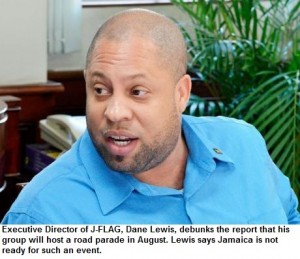



 Michael Jackson – the supposed King of Pop died 10 years ago today.
Michael Jackson – the supposed King of Pop died 10 years ago today.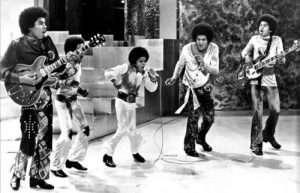
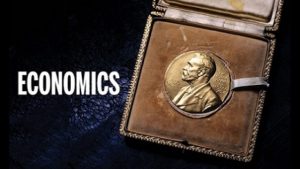 What we want is simpler policies and practices intended for the Greater Good. (This ethos was defined by Jeremy Bentham, who lived 1748 – 1832, as: “the greatest good to the greatest number of people which is the measure of right and wrong”).
What we want is simpler policies and practices intended for the Greater Good. (This ethos was defined by Jeremy Bentham, who lived 1748 – 1832, as: “the greatest good to the greatest number of people which is the measure of right and wrong”).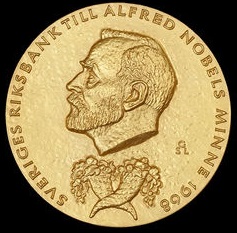

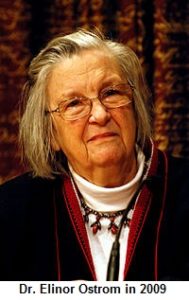 Dr. Elinor Ostrom is in this class of fame and infamy. Regrettably, she passed in 2012, after leaving a legacy for others to benefit from; we are forever grateful for her contributions to the field of Economics and Common Pool Resources. May we all pay more than the usual attention to her productions.
Dr. Elinor Ostrom is in this class of fame and infamy. Regrettably, she passed in 2012, after leaving a legacy for others to benefit from; we are forever grateful for her contributions to the field of Economics and Common Pool Resources. May we all pay more than the usual attention to her productions. Go Lean Commentary
Go Lean Commentary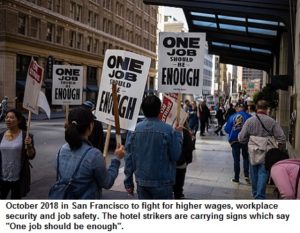
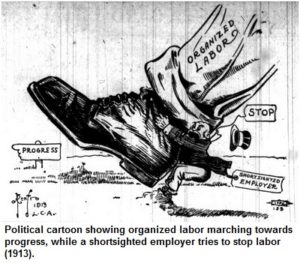 But good things did result! Instead of squishing progressive movements, many companies started a “race to the top” to be
But good things did result! Instead of squishing progressive movements, many companies started a “race to the top” to be  Is it possible to “get along” and have camaraderie without the communism? Yes, indeed! At the heart of the word communism is the verb “commune”, this
Is it possible to “get along” and have camaraderie without the communism? Yes, indeed! At the heart of the word communism is the verb “commune”, this 
 The stewards for a new Caribbean, the movement behind the Go Lean book, want to pronounce the significance of the alphabet letter ‘C‘ to all Caribbean stakeholders.
The stewards for a new Caribbean, the movement behind the Go Lean book, want to pronounce the significance of the alphabet letter ‘C‘ to all Caribbean stakeholders. No self-sufficiency … and we have now ran out … of other people’s money.
No self-sufficiency … and we have now ran out … of other people’s money.

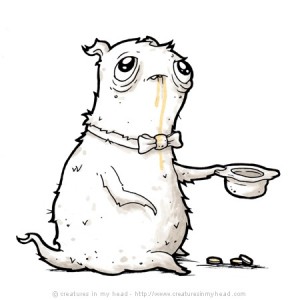


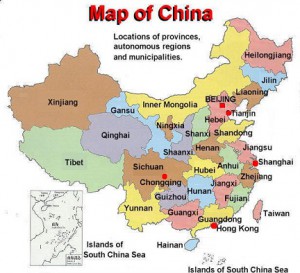 Wait, isn’t China a communist state?
Wait, isn’t China a communist state?
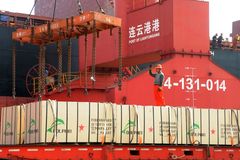 So there is the need for a 360 degree view of trade: the good; the bad; and the ugly. The Caribbean status quo is ugly, in terms of trade, there is the need to reform and transform, so as to reboot our society. But we are not the first, (and will not be the last). Let’s see the lessons we can learn from the trade strategies, tactics and implementations of others. We can all benefit!
So there is the need for a 360 degree view of trade: the good; the bad; and the ugly. The Caribbean status quo is ugly, in terms of trade, there is the need to reform and transform, so as to reboot our society. But we are not the first, (and will not be the last). Let’s see the lessons we can learn from the trade strategies, tactics and implementations of others. We can all benefit!
 The special administrative regions (SAR) are one type of
The special administrative regions (SAR) are one type of 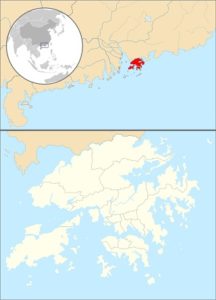 Relations between people in
Relations between people in  First, let’s talk about Free Market as an economic principle. This is the system in which the prices for goods and services are only
First, let’s talk about Free Market as an economic principle. This is the system in which the prices for goods and services are only 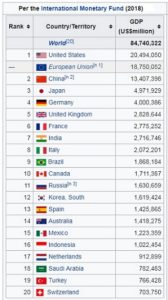
 Truly, the problem in Cuba was the subsequent seizing of assets rather than the political – leftist – ideology. The seizing of American businesses was in effect a de facto Act of War. (The US never engaged official warfare on Cuba because of the geo-political wrangling with the Soviet Union; the island remained a protectorate of that nuclear-armed Super Power; think
Truly, the problem in Cuba was the subsequent seizing of assets rather than the political – leftist – ideology. The seizing of American businesses was in effect a de facto Act of War. (The US never engaged official warfare on Cuba because of the geo-political wrangling with the Soviet Union; the island remained a protectorate of that nuclear-armed Super Power; think 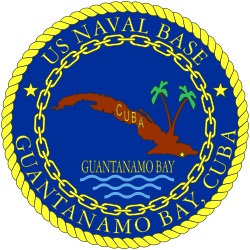
 Cruise ships do service the port cities in Cuba.
Cruise ships do service the port cities in Cuba.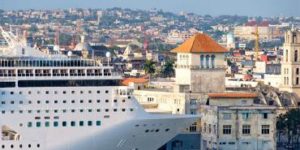
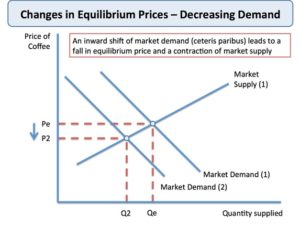
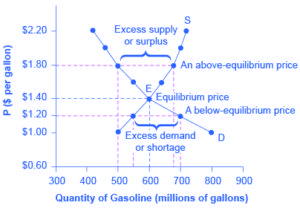
 People want to live in a just society.
People want to live in a just society.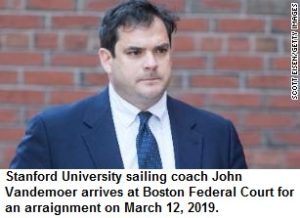 Former Stanford sailing coach John Vandemoer will serve no time in prison in connection with the
Former Stanford sailing coach John Vandemoer will serve no time in prison in connection with the 
 This commentary highlights a disturbing trend in American jurisprudence; it turns out that among judges that associates with the conservative political parties or the liberal political parties, one group consistently sentences Black defendants to longer prison sentences. This is indicative of more than just the tolerance of criminality; this shows some hidden bias, that severely endangers the Black populations in America. These judges, despite claims of non-partisanship, are affected by their party.
This commentary highlights a disturbing trend in American jurisprudence; it turns out that among judges that associates with the conservative political parties or the liberal political parties, one group consistently sentences Black defendants to longer prison sentences. This is indicative of more than just the tolerance of criminality; this shows some hidden bias, that severely endangers the Black populations in America. These judges, despite claims of non-partisanship, are affected by their party.
 ‘Republican’ Judges???
‘Republican’ Judges???